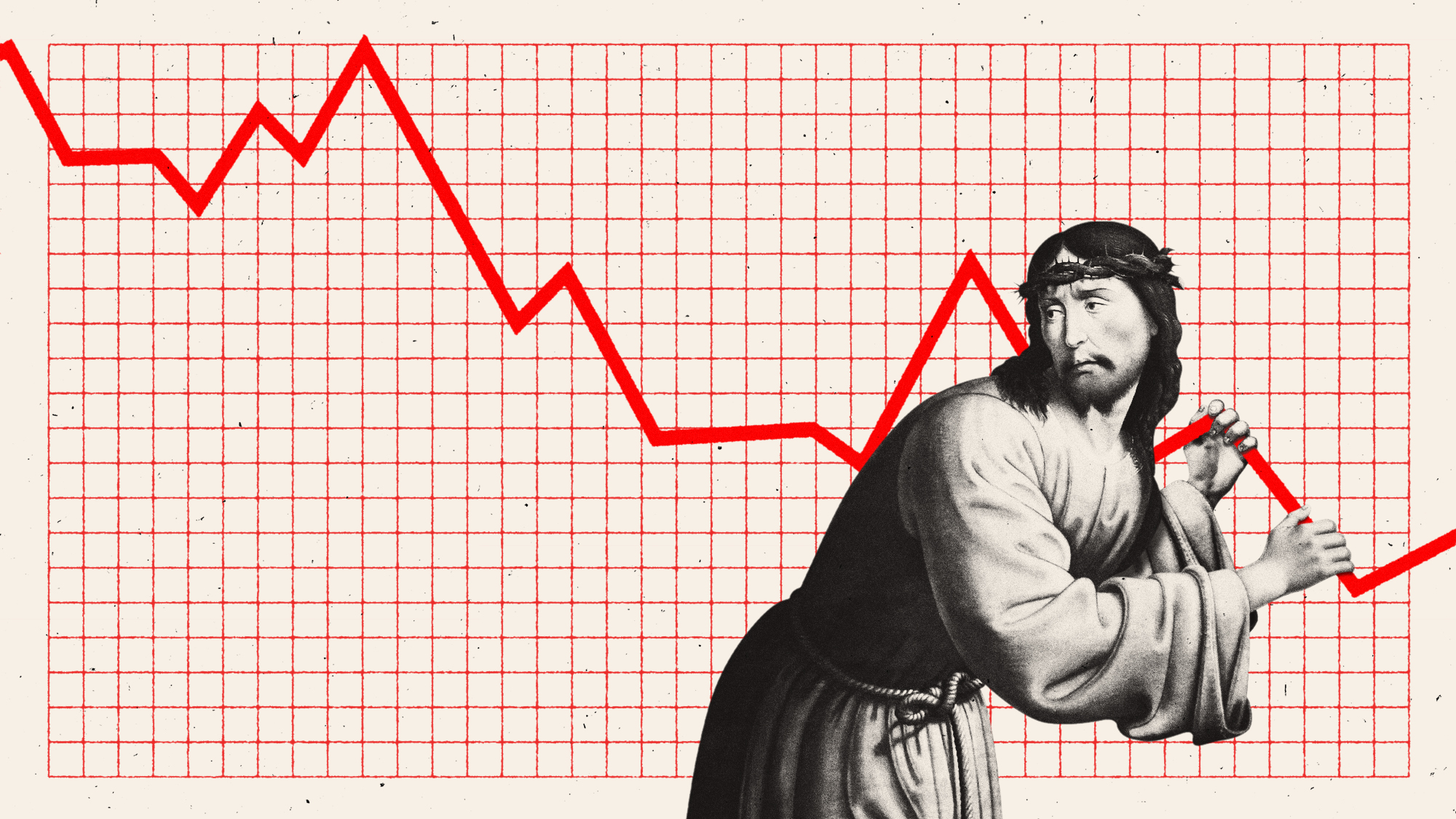The Fed prepares for the next recession
But is it hastening one in the process?


This afternoon, the Federal Reserve will finish its last meeting of the year — and Janet Yellen's last as Fed chair. Expectations are more or less unanimous that it will hike interest rates by 0.25 percent, from a 1-to-1.25 percent target to 1.25-to-1.5 percent one. Its reason for doing so is clear enough: It wants to prepare for the next recession, whenever it comes.
Unfortunately, that's not a good reason. In fact, it's a terrible one.
First, a refresher: The Fed's dual mandate is to keep inflation low and employment high by adjusting interest rates. But this mission requires a balancing act. That's because the two priorities are deeply connected: As the economy runs out of available workers, for instance, businesses have to outbid each other to hire labor, which can lead to price hikes, and therefore inflation. So if the Fed lowers interest rates to help jobs, inflation can climb. Conversely, if the Fed increases interest rates to tamp down inflation, it can slow down job creation. So the Fed is always seeking that sweet spot.
The Week
Escape your echo chamber. Get the facts behind the news, plus analysis from multiple perspectives.

Sign up for The Week's Free Newsletters
From our morning news briefing to a weekly Good News Newsletter, get the best of The Week delivered directly to your inbox.
From our morning news briefing to a weekly Good News Newsletter, get the best of The Week delivered directly to your inbox.
It's having a hard time finding it, though. The Fed's preferred measure of inflation has chronically undershot its 2 percent target, despite Fed officials predicting for years it was about to hit it. Inflation shows no sign of reaching that mark, much less exceeding it — and nevermind exceeding it fast enough to catch Fed officials off guard.
And while unemployment is down to an eye-popping 4.1 percent, the wage growth you'd expect as a result is nowhere to be seen. The last time we hit 4 percent unemployment, wage growth was 4 percent. But we're only at around 2.5 percent now. The straightforward explanation is that we're probably severely undercounting the actual number of potential workers who remain unemployed.
Yet the Fed is preparing to hike interest rates for the third time this year. And the debate over next year's plan seems to be whether there should be three more hikes or four.
What gives?
A free daily email with the biggest news stories of the day – and the best features from TheWeek.com
In terms of thought-out strategy, the Fed arguably has two reasons for this. And they both boil down to preparing for the next recession.
Our last two collapses were caused by some sort of bubble popping, first in tech stocks and then in housing debt. Lots of Fed officials see hiking interest rates as a way to discourage the next asset bubble. On top of that, the Fed has generally had to cut its interest rate target by at least 4 percentage points to fight recent recessions. If interest rates aren't back up to at least 4 percent or so by the time the next collapse comes, the Fed won't be able to respond.
Unfortunately, these preparations for the next recession are likely to hasten its arrival.
First off, interest rates are a horribly blunt tool for popping asset bubbles, and need to be really high to make a meaningful difference. They were about 5 percent going into the Great Recession, and would probably have had to be twice that to pre-emptively deflate the housing bubble. That would've brought about a recession to prevent one. Hiking interest rates to set the stage for cutting them suffers from the same burn-the-village-to-save-it problem.
This might all sound like a lose-lose situation for the Fed. On the one hand, raising interest rates might create a recession now; on the other, doing nothing means being bereft of weapons whenever recession does strike.
But there's actually an easy way out of this predicament: Stop relying on the Fed to reverse recessions by itself.
For decades, government has given the Federal Reserve, rather than Congress, the job of managing the economy. Everyone just assumed the Fed, when it needed to, could always cut interest rates low enough to boost the economy back to health. But what if it can't? Congress will just have to step up.
Given this Republican Congress' aversion to spending, that might sound like a terrifying proposition. But we're better off acknowledging reality than pretending the central bank can extricate us from this mess on its own.
Jeff Spross was the economics and business correspondent at TheWeek.com. He was previously a reporter at ThinkProgress.
-
 The UK’s supposed Christian revival
The UK’s supposed Christian revivalThe Explainer Research has shown that claims of increased church attendance, particularly among young people, ‘may be misleading’
-
 How long can Keir Starmer last as Labour leader?
How long can Keir Starmer last as Labour leader?Today's Big Question Pathway to a coup ‘still unclear’ even as potential challengers begin manoeuvring into position
-
 Child-free train carriages: has push for adults-only spaces gone too far?
Child-free train carriages: has push for adults-only spaces gone too far?Talking Point Under-12s ban on premium commuter train carriages in France sparks backlash across the political divide
-
 The pros and cons of noncompete agreements
The pros and cons of noncompete agreementsThe Explainer The FTC wants to ban companies from binding their employees with noncompete agreements. Who would this benefit, and who would it hurt?
-
 What experts are saying about the economy's surprise contraction
What experts are saying about the economy's surprise contractionThe Explainer The sharpest opinions on the debate from around the web
-
 The death of cities was greatly exaggerated
The death of cities was greatly exaggeratedThe Explainer Why the pandemic predictions about urban flight were wrong
-
 The housing crisis is here
The housing crisis is hereThe Explainer As the pandemic takes its toll, renters face eviction even as buyers are bidding higher
-
 How to be an ally to marginalized coworkers
How to be an ally to marginalized coworkersThe Explainer Show up for your colleagues by showing that you see them and their struggles
-
 What the stock market knows
What the stock market knowsThe Explainer Publicly traded companies are going to wallop small businesses
-
 Can the government save small businesses?
Can the government save small businesses?The Explainer Many are fighting for a fair share of the coronavirus rescue package
-
 How the oil crash could turn into a much bigger economic shock
How the oil crash could turn into a much bigger economic shockThe Explainer This could be a huge problem for the entire economy
